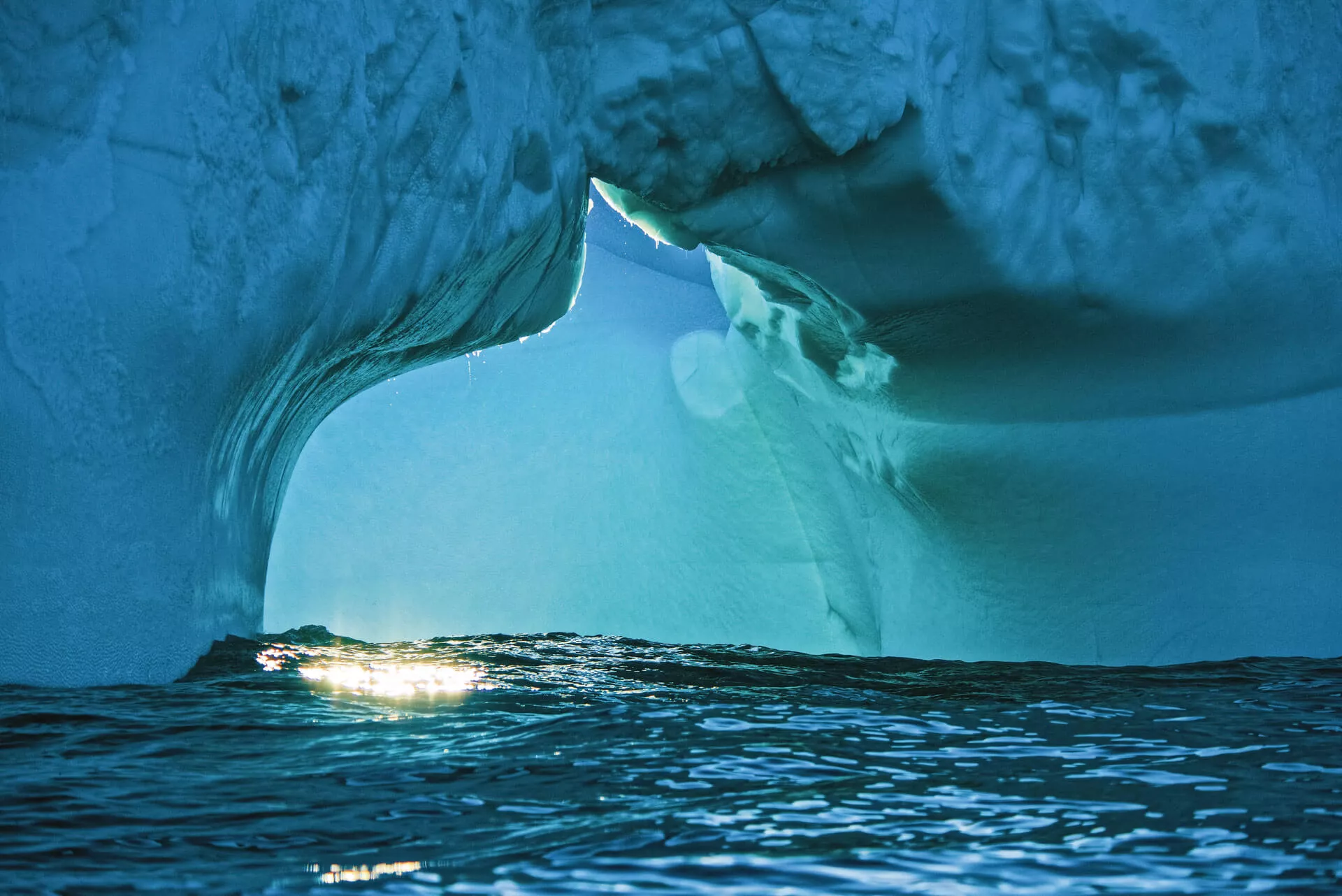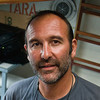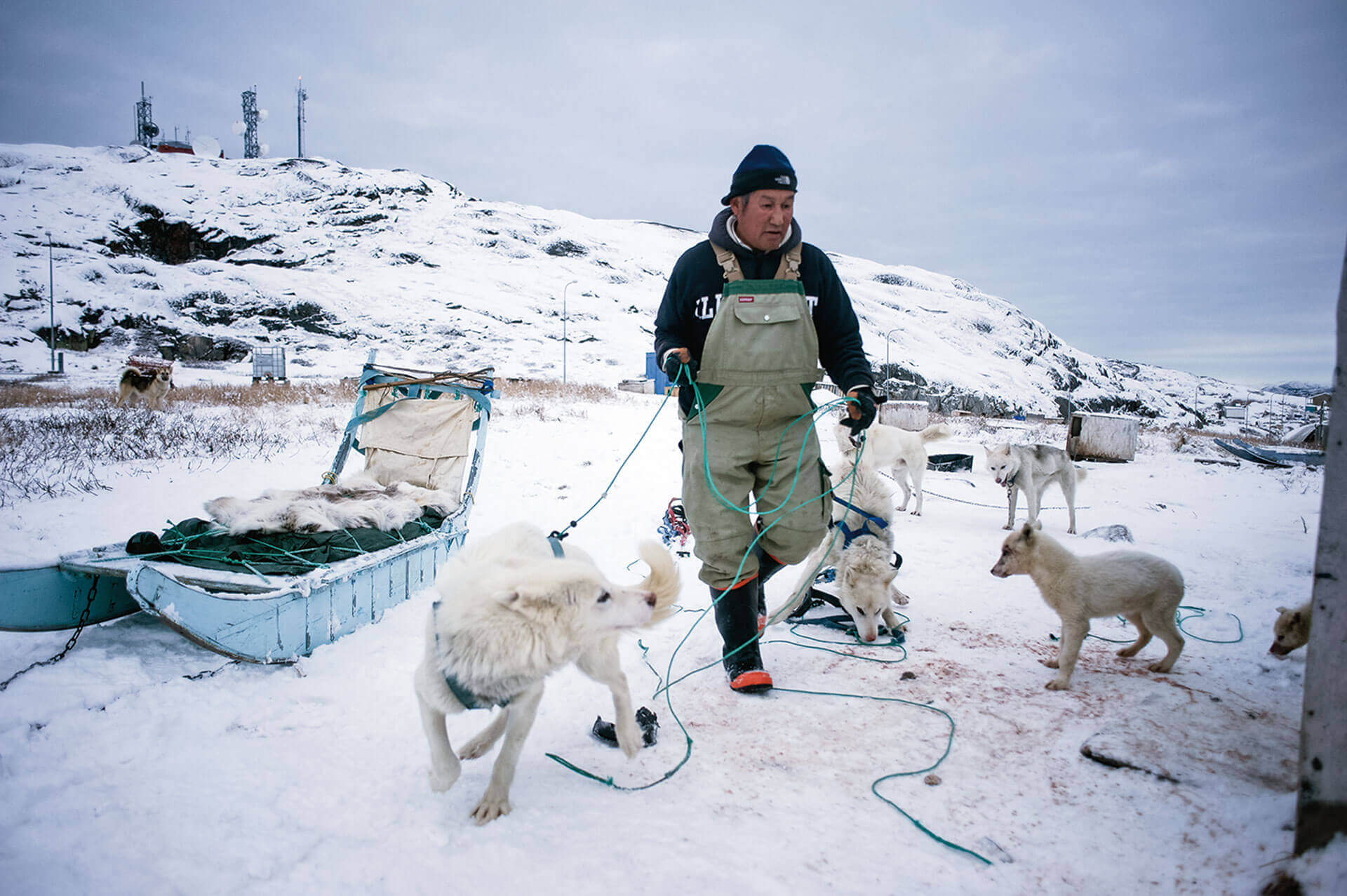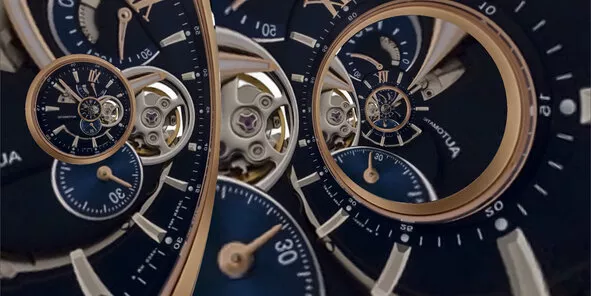
Polar opposites

The intoxicating effects of space and freedom
Environments that hold out such promise have become rare indeed.
But the Arctic and Antarctic are synonymous with open space. Vast expanses of immaculate ice floes, virgin lands bathed in light, sometimes diffuse and sometimes dazzlingly bright close to the poles. Even on board a comfortable, specially equipped ship, there is always an air of adventure surrounding polar travel – after all, it’s not every day you meet narwhals and killer whales! – not to mention a breathtakingly pure sense of freedom. But each pole has its own special character.
At the North Pole, the ocean is covered with pack ice, the home territory of polar bears (the word ‘Arctic’ is derived from the Greek arktos for ‘bear’), and has been populated for millennia by the Inuit, with their distinct culture and way of life. At the South Pole lies a gigantic mountainous island capped with ice and inhabited mainly by penguins and scientists on research missions. Two geographical spaces with two equally rich and distinct histories.
Listen to the silence
After just a few hours of travel, be it by plane or boat, the silence becomes palpable. Total. Mysterious. Relentless. No more phone calls, no more e-mails. To begin with, you feel rather off-balance, but it’s not long at all before you realise just how lucky you are: in our hyper-connected world, isolation and calm are beyond precious. Here, there’s no option but to leave a daily life, that tends to suck us increasingly into a perpetual whirlpool of demands and expectations, far behind. Liberated and relaxed, you’re finally free to marvel at the spectacle: the beauty of the drifting ice in Disko Bay, the midnight sun reflecting off the white continent, the flight of an Arctic tern over Tasiilaq, the fleeting magic of a northern dawn... The polar journey is also an inner journey.
Back to basics
Here is one of the paradoxes of a voyage to the poles. It requires a significant level of logistics and resources to reach places where the complete lack of both is the normal state of affairs. And the experience takes the traveller back to basics. In the empty vastness of these great white deserts, every action has a meaning, from eating, sleeping and drinking to protecting yourself against the elements, thinking about the basics, sharing points of view, listening and simply enjoying the peace and quiet. Many travellers find that the poles have a healing effect, sometimes to the point of mystical or philosophical revelation. In this endless emptiness, we find ourselves. We test our limits, physically embrace the concept of survival and adjust our points of reference. We return to the essentials of what it is to be human.
Being part of the big picture
If there’s one issue that can’t be avoided or evaded when travelling to the Far North or Far South, it is this: as they marvel at the beauty of iridescent icebergs in shimmering light, polar travellers can only wonder whether they are one of the last lucky few to be seeing something destined to disappear. The journey to the poles is an appointment with the planet itself. Far to the south, hundreds of international scientists engaged in studying Antarctic ice are accumulating data on the effects of global warming. For the newcomer, the ‘light bulb’ moment often occurs in the extreme north through contact with Inuit populations who are having to adapt their way of life to deal with this “new normal”. When confronted with the real-life effects of climate change, many people return convinced of the necessity for action so that others can one day follow in their footsteps to experience the beauty of these regions for themselves.
Shoulder to shoulder with illustrious predecessors
Their names were Fridtjof Nansen, Ernest Shackleton and, of course, Roald Amundsen. The first discovered much of the Arctic aboard the expedition ship Fram, the memory of the second remains fresh as a result of the epic Endurance voyage to Antarctica, and the third pioneered Polar exploration before reaching the South Pole just ahead of the ill-fated Robert Falcon Scott expedition. Today’s name is Mike Horn (see our article). He also has an awesome record of solo and accompanied exploits at these extremities of the Earth. Each of these expeditions is a continuation of the previous one, with all that implies in terms of courage and lessons learned.
The resulting accumulation of experience inevitably comes to mind when travelling to either pole. It’s hard to avoid the feeling that you’re walking in the footsteps of these explorers, and tempting to think that you’ve entered their exclusive club on your return.
FROM TARA TO GREENLANDIA : Humanity and climate
“On returning from an expedition around the North Pole aboard Tara, I wanted to talk about the experience in a new way by focusing on the human issues involved”, says photographer and seasoned polar traveller Vincent Hilaire. And that was the genesis of the Greenlandia project (greenlandia.org), whose first mission in 2020 will focus on Scoresbysund Fjord, in Inuit territory, at 70° North latitude.
The purpose of this scientific, documentation and educational mission sponsored by French doctor, explorer and scientist Jean-Louis Étienne is to take time to listen, observe and document the everyday effects of climate change on the people who live in the extreme north. The central idea is to carry out this work in order to fill a gap in our knowledge, as Vincent Hilaire explains: “We know very little, or at least only unconnected pockets of information, about the effects of climate change on people”.

White and peaceful Antarctica
The white continent is also a land of peace. Now signed by 53 countries, the Antarctic Treaty of 1959 effectively states that all those territories south of the 60th parallel are reserved exclusively for scientific and non-military research. Antarctica, where the lowest temperature on Earth was recorded in July 1983 (-89.2°C), is home to some sixty scientific bases.




